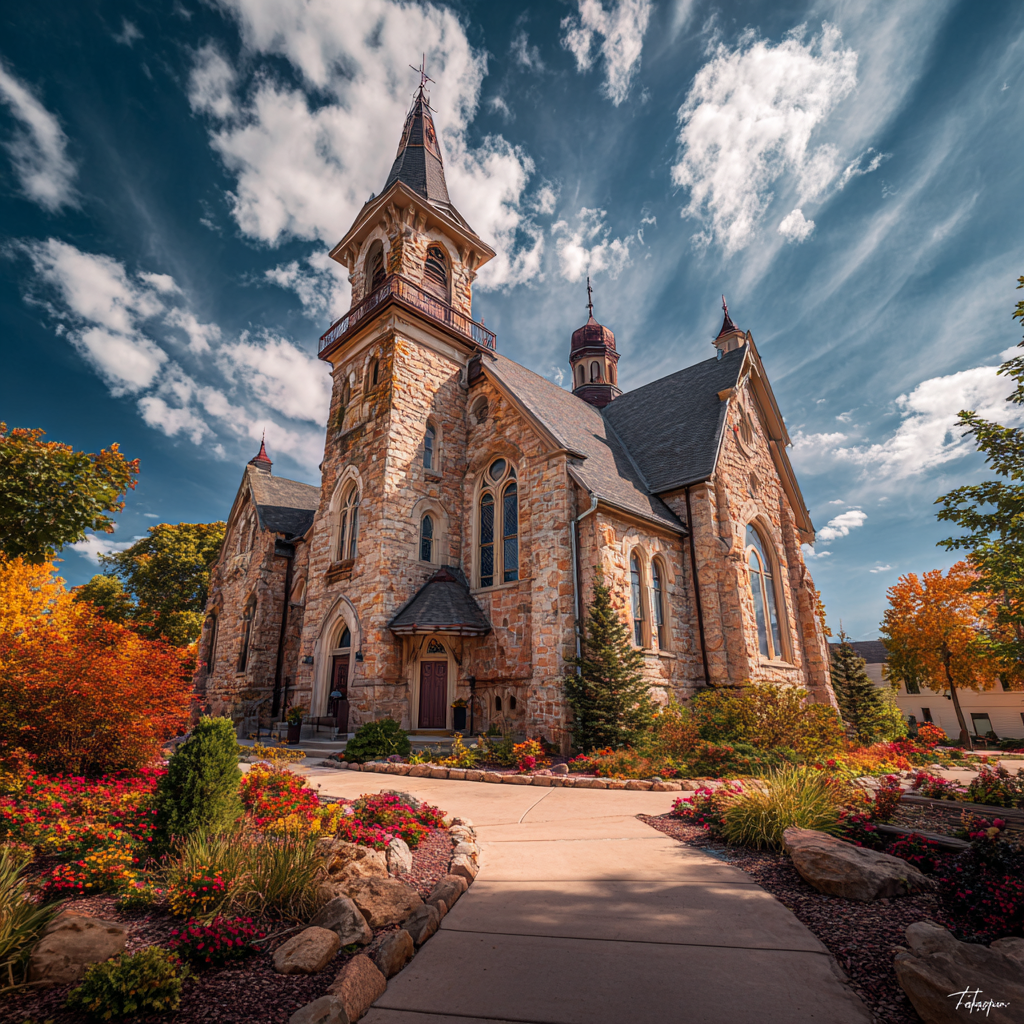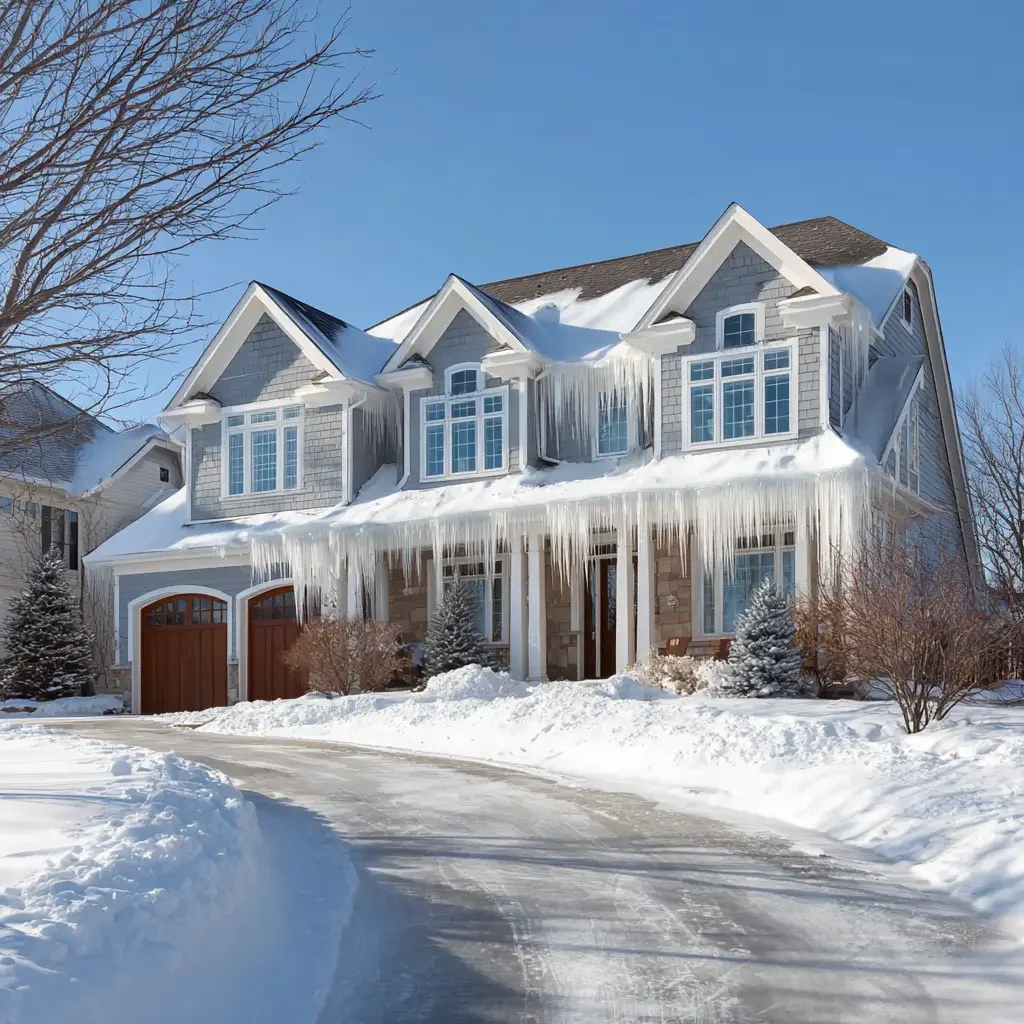A Pastor's Guide to Wisconsin Church Insurance & Denied Claims
TLDR: Key Takeaways for Protecting Your Wisconsin Ministry
Your Church Isn't a Standard Business: Standard insurance policies often fail to cover the true replacement cost of unique assets like stained-glass windows, pipe organs, and historic architectural elements, leaving you dangerously underinsured.
Insurers Use Specific Tactics for WI Claims: Be prepared for your insurance company to call hail damage "cosmetic," blame winter ice dam leaks on "poor maintenance," or ignore pervasive smoke damage after a small fire in order to deny or underpay your claim.
A Public Adjuster Fights Back with Evidence: We counter these tactics with proof, using experts like engineers, meteorologists, and industrial hygienists to document the full extent of your loss and compel a fair and proper settlement.
"Ordinance or Law" Coverage is Non-Negotiable: For Wisconsin's many historic churches, this policy add-on is critical. It pays the significant extra costs required to bring your building up to modern code during repairs—costs a standard policy will not cover.
Bottom Line: Don't let a complex property claim jeopardize your mission. A public adjuster from Shoreline Public Adjusters acts as your expert representative to manage the entire process, allowing you to focus on your congregation.
A Wisconsin Leader’s Guide to Church Insurance: Protecting Your Ministry from Property Loss
The steeple of your church in Madison is a landmark against the skyline. The fellowship hall in your Milwaukee parish is the heart of neighborhood gatherings. For decades, your ministry has been a place of sanctuary, community, and faith.
But what happens when a sudden disaster threatens that sanctuary? What happens when a severe Wisconsin hailstorm shreds the historic slate roof, or an ice dam on a frigid Green Bay night forces water into the walls of the sanctuary?
You turn to your insurance policy, believing the protection you’ve faithfully paid for will be there. Too often, however, church leaders are met with delays, denials, and settlement offers that fall dangerously short of what is needed to truly make their ministry whole again.
This guide is for the pastors, board members, and stewards of Wisconsin’s churches. We will go beyond the basics to explore the unique risks you face, the critical coverages you must have, and the steps you must take when your insurance company fails to honor its promise.
Why Church Insurance Isn't Just "Business Insurance"
An insurance company might see a church as just another commercial property, but you know it’s profoundly different. The unique nature of your buildings, assets, and operations creates complex risks that a standard business policy often fails to address.
The Challenge of Valuing the Irreplaceable
How do you put a price on a 100-year-old, hand-carved altar or a series of stained-glass windows gifted by the founding members? An insurer might try to pay you the Actual Cash Value (ACV), which is the replacement price minus depreciation. For a 100-year-old window, that could be close to zero.
A knowledgeable public adjuster will fight for Replacement Cost Value (RCV), which is the true cost to repair or replace the item with materials of like kind and quality, without any deduction for depreciation. For a church, having an RCV policy is non-negotiable.
The Complexity of a Church Campus
Many Wisconsin churches are more than just a sanctuary. You may have a campus with multiple structures: a rectory or parsonage, a school building, a separate administrative office, or a community outreach center. Each building may have different construction types, ages, and uses, requiring a carefully structured policy to ensure there are no gaps in coverage.
The Unique Nature of Your Assets
A church's contents go far beyond desks and chairs. They include:
Expensive pipe organs and modern sound systems.
Commercial-grade kitchen equipment.
Sacred texts, historical records, and ceremonial artifacts.
Pews, altars, and other custom-built fixtures.
Properly insuring these items requires specific endorsements and detailed documentation, which are often overlooked in a standard policy review.
The "Big Three" Perils for Wisconsin Churches: A Deep Dive
In Wisconsin, we see the same three types of claims devastate churches time and again. Here’s a look at the risk, the common insurer tactic used to underpay the claim, and the public adjuster's counter-strategy.
1. Winter Damage: Ice Dams & Roof Collapse
The Scenario: A long, cold winter with heavy snowfall builds up on your church's large, complex roof. An ice dam forms at the eaves, forcing melting snow back up under the shingles. Water begins seeping into the attic, insulation, and eventually stains the sanctuary ceiling.
The Insurer's Tactic: The company adjuster may deny the claim, blaming the damage on "faulty roof maintenance," "pre-existing wear and tear," or "construction defects." They will offer a small payment for interior paint and drywall, but refuse to address the root cause: the compromised roof and saturated insulation.
The Public Adjuster's Counter-Strategy: We bring in thermal imaging cameras to trace the full extent of the water migration, proving it originated from the ice dam. We hire a structural engineer to document that the roof was sound before the event and a roofing consultant to create a scope of work that includes proper ventilation and insulation to prevent future ice dams, as required by current building codes. We force the insurer to pay for a full and proper repair, not just a cosmetic patch.
2. Hail Damage: The "Cosmetic" Denial
The Scenario: A powerful spring thunderstorm rolls through the Fox Valley, dropping quarter-sized hail on your church. From the ground, the roof looks fine, but a local contractor notes significant damage to the shingles and the soft metal of the HVAC units.
The Insurer's Tactic: This is one of the most common denials. The insurer’s adjuster will call the dings and dents "cosmetic damage" that doesn't affect the function of the roof. They will deny the claim, leaving you with a damaged roof that will inevitably leak and fail years before its expected lifespan is over.
The Public Adjuster's Counter-Strategy: We treat the site like a forensic investigation. We bring in a certified hail damage expert and, if needed, a meteorologist to provide certified reports confirming the date, time, and size of the hail that struck your location. We perform test squares on the roof to prove that the hail has bruised the shingle matting, voiding the manufacturer's warranty and compromising its ability to shed water. We prove the damage is functional, not cosmetic, compelling the insurer to pay for a full roof replacement.
3. Fire Damage: The Hidden Cost of Smoke
The Scenario: An electrical issue in the church office sparks a fire that is quickly contained. The structural damage seems minimal, limited to one room.
The Insurer's Tactic: The company adjuster offers a quick payout to rebuild the fire-damaged office. They completely ignore the pervasive, corrosive effects of smoke and soot that have traveled through the HVAC system into every corner of your ministry.
The Public Adjuster's Counter-Strategy: We know that smoke is the real enemy. We hire an industrial hygienist to test for soot and particulate matter throughout the building. We document how acidic smoke has contaminated the pipes of your organ, the fabric on the pews, the sensitive electronics in your sound system, and the entire HVAC network. What started as a small fire claim becomes a comprehensive restoration project that includes professional deodorization and replacement of contaminated assets—a value often ten times higher than the insurer's initial offer.
The Essential Church Insurance Checklist
Review your policy annually with your board. If you don't have clear and robust coverage for the following, you are exposed.
Property Insurance at Replacement Cost Value (RCV): Covers the physical structures and contents without deducting for depreciation.
Ordinance or Law Coverage: This is critical. It pays the extra costs to bring your historic building up to modern building codes during repair.
"Ministry Continuation" (Business Interruption) Coverage: Replaces lost tithes, offerings, and other income (like preschool tuition) if you're forced to close temporarily. It also covers ongoing expenses like staff salaries and utilities.
General Liability Insurance: Protects against lawsuits from accidents or injuries on church property (e.g., a slip and fall on an icy walkway).
Pastoral & Professional Liability: Protects clergy and lay counselors from claims of malpractice or emotional distress arising from their counseling duties.
Directors & Officers (D&O) Liability: Protects the church board and leadership from being held personally liable for decisions they make on behalf of the ministry.
Equipment Breakdown Coverage: Covers the sudden mechanical or electrical failure of essential systems like boilers, HVAC units, and kitchen appliances.
Frequently Asked Questions (FAQ) for Wisconsin Churches
Q: Our insurance broker says we have a great policy. Why would we need a public adjuster?
A: Your broker and your public adjuster have two different, vital roles. Your broker is the agent who sells you the policy before a loss occurs. A public adjuster is the claims expert you hire after a loss to manage the claim and hold the insurer to the promises made in that policy. We specialize in the claims process itself.
Q: What is the Appraisal Clause in an insurance policy?
A: The Appraisal Clause is a powerful but often misunderstood provision. If you and your insurer agree that the damage is covered but disagree on the price, either party can invoke appraisal. Each side hires an independent appraiser, and those two appraisers select a neutral "umpire." An agreement by any two of the three is binding. A public adjuster can manage this entire process for you to force a fair settlement.
Q: How do we prove the value of unique or antique items?
A: This requires expert documentation. A public adjuster will work with specialized art, instrument, and antique appraisers to establish a certified value for these items, preventing the insurer from treating them like standard, off-the-shelf products.
Don't Navigate the Claim Alone
As a church leader, your time and energy are dedicated to your congregation and your community. You are not an insurance expert, and you shouldn't have to become one while dealing with the trauma of a property loss.
At Shoreline Public Adjusters, we see our work with churches as a calling. We step in to handle the entire burden of the claims process—the documentation, the phone calls, the negotiations—so you can focus on what matters most: your ministry. We are licensed professionals who know the laws, the policies, and the tactics used in Wisconsin.
If your church has suffered property damage, or if you're simply unsure about your current coverage, contact Shoreline Public Adjusters today for a free, no-obligation policy review and consultation.
Shoreline Public Adjusters, LLC
780 Fifth Avenue South
Suite #200
Naples, FL 34102Email: hello@teamshoreline.com
Phone: 954-546-1899
Fax: 239-778-9889



Got a lowball offer or a denied claim? In most cases, it's not too late to hire a public adjuster. Learn the state-specific deadlines and claim stages where a licensed public adjuster can still fight for a higher settlement on your behalf.